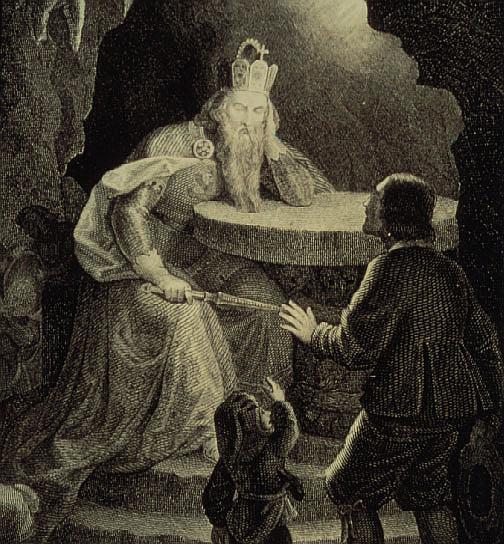IN THE BEGINNING WAS THE WORD II
~ In the Court of the Crimson King ~
- chapter 11 index -
pg. 1 - Moonchild | pg. 2 - The Dream The Illusion
pg. 3 - The Court of the Crimson King | pg. 4 - The Purple Piper
pg. 5 - Three Lullabies | pg. 6 - Orpheus
pg. 7 - The Keeper of the City Keys | pg. 8 - The Pilgrim's Door
pg. 9 - The Gardener | pg. 10 - The Yellow Jester
pg. 11 - The Dance of the Puppets | pg. 12 - Dionysus
pg. 13 - The Fool | pg. 14 - Logos
pg. 15 - The Magician | pg. 16 - Finis
site index
Translate from
"I wait outside the pilgrim's door
With insufficient schemes."
the funeral march,"























 Arachnophilia
Arachnophilia